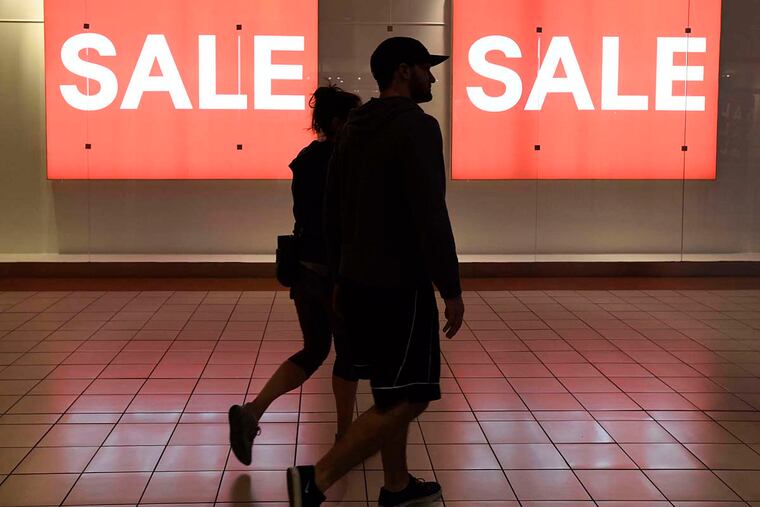Giving the Gift of Time
They don't call this the season of giving for nothing. But a recent survey by Consumers' Research, an independent consumer-policy think tank, throws cold water on the idea that giving gifts is equal to giving love.

They don't call this the season of giving for nothing.
But a recent survey by Consumers' Research, an independent consumer-policy think tank, throws cold water on the idea that giving gifts is equal to giving love.
Instead, quality bonding time with family is priceless, according to the online survey of 1,031 adults last month. Noteworthy findings of the second annual survey:
Nearly 60 percent of Americans rate "spending time with loved ones" the highest possible priority, and consider "quality time with loved ones" a very desirable holiday gift.
About 25 percent said they thought this holiday season would be "the merriest it could possibly be," up from 19 percent last year.
And how about this little ditty: The poorest respondents were the most excited to make charitable donations.
For Michael Halpin, 27, and wife Megan, 27, of Northeast Philadelphia, it's all about the family.
As they put their 4-month-old son, Michael John Halpin, on Santa's lap at Willow Grove Park Mall recently, the new parents glowed.
Michael Halpin is a full-time, fourth-year medical student at the Philadelphia College of Osteopathic Medicine, while Megan is a nurse at Abington Memorial Hospital.
"We're always watching what we spend," he said. "There is sort of an unspoken cap on our spending - that we can't go crazy."
The new baby, he said, keeps them "centered," because "a 4-month-old doesn't care what he gets."
After leaving Santa, the Halpins walked through the mall. They didn't buy anything.
Joe Colangelo, executive director of Consumers' Research and author of the survey, said social expectations are at a peak this time of year.
"As little kids, we wanted presents," Colangelo said. "It's a hard habit to break, and there's the feeling that everyone else is doing it.
"If we could just get the word out that people should spend time with their families and not empty out their bank accounts, they could have a less stressful holiday season."
That's much easier said than done.
Total sales on Black Friday this year were bustling and show there may be a gulf between what people yearn for this time of year and what they actually do.
Sales in November, according to the U.S. Commerce Department, rose 0.2 percent seasonally adjusted over October, and 1.4 percent unadjusted year-over-year from November 2014.
"Consumers right now are getting great value for significantly less this holiday season, given the deflationary environment that continues to impact overall trends in spending," said Jack Kleinhenz, chief economist at the NRF. "Additionally, the broadening of the holiday season, warmer-than-normal weather patterns, and a shift in spending toward services remain the top challenges for retailers right now. All in all, the growth in November really does point to a healthy consumer who, at the end of the day, will help retailers see solid growth."
But the bombardment of ads to buy is why the holidays are anything but stress-free, Colangelo said. Among his tips to keep your blood pressure down: Decide in advance how much to spend and stick to it.
Another tip: more talking, less shopping.
"Maybe we simply aren't talking or listening to each other enough," Colangelo said. "How can we know what someone wants if we're spending more time shopping than talking to them?
"The survey shows the holiday spirit is really alive and well in America," he said. "The habit of overspending on gifts is not impossible to break. People can really give amazing gifts - like converting their time to love.
"Having a real conversation is a great start on whether to give each other a gift, or to put that money toward a charitable contribution," he continued."For my money, it doesn't get any better than everyone deciding to split the cost of a big dinner together."
Playing grinch to that is Bob Phibbs, chief executive officer of the Retail Doctor, a retail consultancy in New York. Phibbs represents several national retailers and said blaming them for consumers' overspending wasn't fair.
"People are working harder than ever," he said. "We live in a world where who knows what the future is going to bring? It's really not any different in 2015 from 1950.
"People mark events in their lives - a new baby, promotion, wedding, family vacation - with purchases and buying things, and I would suggest humbly, that they buy because they are hopeful," Phibbs said. "We are facilitating that hope. That's everybody from the highest luxury brands, all the way down to mass retailers.
"It's not a function of economics, but of goodwill," he said. "The earliest caveman made something and gave it as a gift.
"We are social creatures, which flies in the face of online shopping, and why 85 percent [of people] are still shopping at brick-and-mortar stores."
215-854-4184@SuzParmley